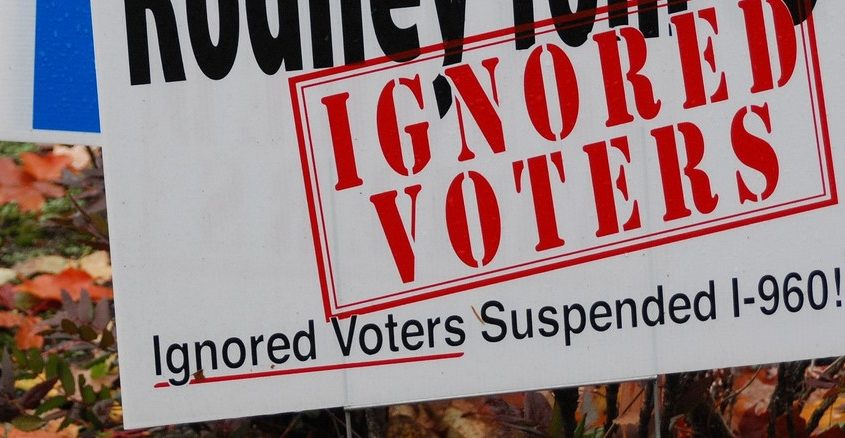
A McLin on Flickr. Original photo has been modified
Negative Campaigning in the U.S Midterm Elections and Implications for Germany

Susanne Thelen
Institute of Political Science at the University of Technology Chemnitz
Susanne Thelen was a DAAD/AICGS Research Fellow from October to December 2018. She is currently a doctoral candidate at the Institute of Political Science at the University of Technology Chemnitz. Her PhD is about campaign strategies, especially “negative campaigning” in the 2017 German federal election.
Before beginning her PhD, Ms. Thelen interned at the Konrad Adenauer Foundation in Washington, DC, during the 2016 presidential election. Her Master’s thesis analyzed the Twitter attacks by presidential candidates Donald Trump and Hillary Clinton. In 2017, she worked for the CDU Department of Campaigning & Advertisement during the German federal election to continue her research about election campaigns.
Ms. Thelen lives in Rhineland-Palatinate and is a member of the CDU and a member of the State Executive Board of the CDU in Rhineland-Palatinate. She worked as a Retail Business Management Assistant, studied Business Administration and Marketing (BA), and holds a Master’s in Politics and Communications from the University of Trier.
During her time at AICGS, Ms. Thelen will focus on the differences between German and American campaign strategies. She will examine U.S. campaign strategies and American influence on German campaign strategies, including the ways in which they may serve as role models to some German parties. Moreover, the midterm elections in November 2018 may provide new perspectives on “negative campaigning” or other campaign strategies. Negativity in election campaigns is a part of political culture. While in Washington, Ms. Thelen will discuss this issue with other researchers, professors, and political experts, among others, investigating whether there are similarities or discrepancies between electoral campaigns in Germany and the U.S.

As a DAAD/AGI Research Fellow in November and December 2018, Susanne Thelen examined the differences between German and American campaign strategies, asking: Can U.S. campaign strategies serve as a role model for some German parties? Moreover, the midterm elections in November 2018 offer new perspectives on “negative campaigning” and other campaign strategies.
Read her Transatlantic Perspectives essay on this topic.
Read the summary of her seminar.
Supported by the DAAD with funds from the Federal Foreign Office (FF).









